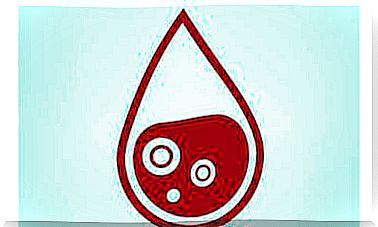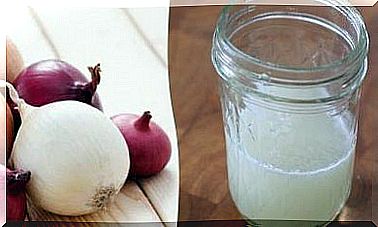Lipids: Properties, Types And Functions
Lipids play an important role in the body. They not only serve as an energy reserve, but are also involved in the transport of some nutrients. How are they classified?
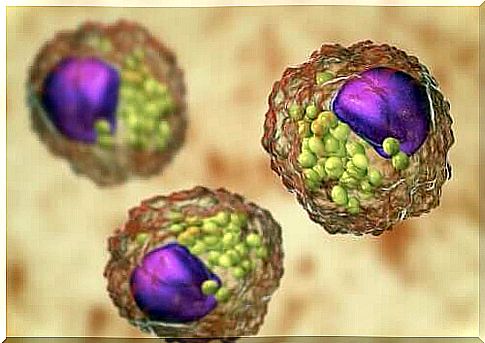
Lipids play a very important role in health. They are not only of central importance as the body’s energy reserve, but are also involved in essential processes in the body, including the transport of nutrients and the regulation of body temperature.
Overall, these substances are very diverse and have several origins. In fact , they are known for their role in the nourishment of living things as they are essential for the absorption of some vitamins and for the optimal functioning of metabolism.
But what exactly are lipids and what are their functions? Since we read or hear this term often when it comes to health and nutrition, we should answer these questions. Here are some more explanations about that.
What are lipids
Lipids are a group of biological molecules that are involved in relevant processes in the body. In particular, they are part of the cell membrane. In this way , they form the basis for the production of hormones and are primarily responsible for storing energy.
They are made up of hydrogen and carbon, although to a small extent they may also contain sulfur, nitrogen or phosphorus. In any case, they are characterized by the fact that they are insoluble in water and represent one of the main energy reserves for the body.
Although the term lipid is often used to refer to fat, it is important to note that not all lipids are fats, but all fats are lipids. There are different types of lipids, classified according to their physical properties and the functions they perform.
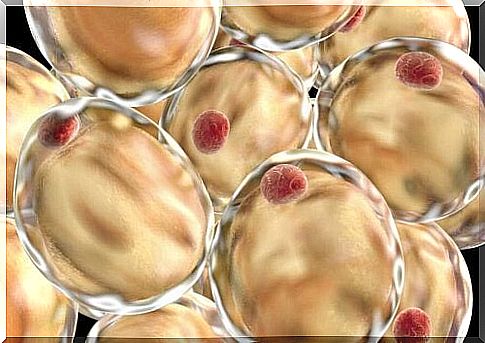
Lipids: what types are there?
As detailed in an article published in the scientific journal Biochimica et Biophysica Acta , the term “lipids” encompasses several compounds that have relevant biological functions. Therefore, when talking about these substances, it is important to know how they are classified. What types of lipids are there?
Phospholipids
Phospholipids are made up of chains of fatty acids, phosphate and glycerine. They form hydrophobic structures. That means that they repel water. Their most important function is the formation of cell membranes.
They also perform other processes, such as digesting other fats in the small intestine. The body is able to produce all the phospholipids it needs.
cholesterol
Cholesterol is a vital molecule for the body. Contrary to what many people think, it’s not always bad. It is part of the cell membrane ; in addition, it forms the precursor of various substances, such as some vitamins or hormones such as steroids.
Therefore, a certain amount of cholesterol is essential for the body to function properly. However, too much cholesterol can cause it to build up in the blood vessels. This is a problem because these vessels can become blocked and consequently there is a higher risk of heart attacks or circulatory disorders.
Glycolipids
Glycolipids are fats that also contain sugar molecules in their structure. Their main function is related to the immune system. They are located on the outside of the cell membrane and act as a signal to the cell membrane.
Triglycerides
Triglycerides are made up of fat and alcohol. Specifically, these are the molecules into which the excess energy or sugars in the body are converted. That is, they form the body’s energy reserves.
As with cholesterol, excess triglycerides tend to build up in the blood vessels and the rest of the body. Because of this, high levels are associated with health problems.
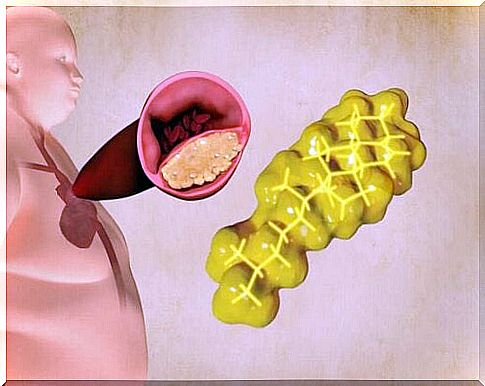
Steroids
Steroids are molecules made by cholesterol and hormones. Some examples are testosterone or estrogen. These need cholesterol in order to be synthesized in the body. First and foremost , they have regulating and activating functions.
What functions do lipids perform in the body?
Depending on their type, lipids fulfill different essential functions in the body. According to a publication in Molecular Biology of the Cell, these are structural or signal functions. Some of the most important are detailed below.
Energy reserve
The main function of this substance is to serve the organism as an energy reserve. One gram of fat can provide the body with 9 kilocalories. When a person has an excess of sugar, it is stored in the form of fat deposits. They are used when other energy sources, such as carbohydrates, are lacking.
Formation of structures
Some lipids form important structures in the body. The most important example are the cell membranes. These consist of a certain type of lipids, which in turn are essential for the formation and protection of the cell.
Cellular Communication and Lipids
The cells communicate with each other using various substances that act as signals, such as vitamins, hormones and glycolipids. They also have the function of regulating some secretions and various reactions in the body.
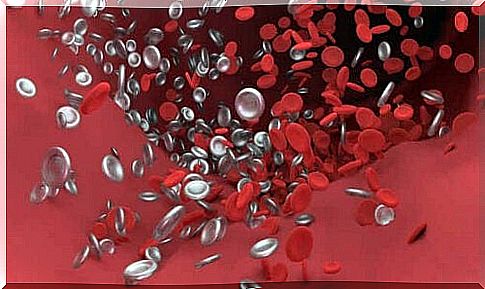
transport
There are lipids that act as messengers for other substances through the body, such as nutrients. In general , this function is performed in conjunction with bile acids and lipoproteins.
Regulation of body temperature
Fat deposits that accumulate under the skin and around the organs act as protection against the cold. The fat keeps the heat from escaping to the outside, preventing the body from cooling down.
Lipids: what should be considered?
Although the types and functions of lipids are diverse and complex, they are generally vital organic compounds. To some extent , they are critical to the proper functioning of the body. However, in excess, some species are harmful.
Therefore, it is advisable to maintain healthy lifestyle habits, especially when it comes to diet. It is also important to have regular medical examinations. In case of abnormal blood counts, it is imperative to follow medical treatment.



